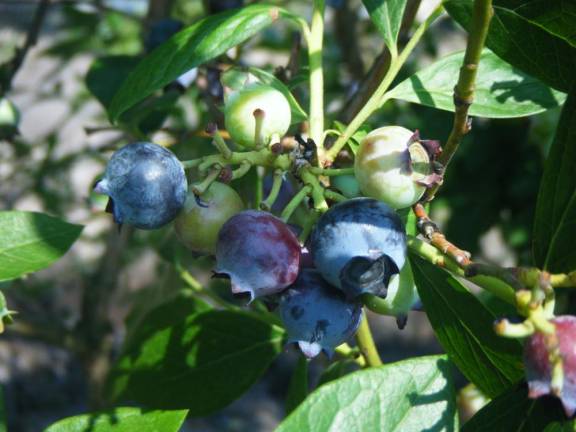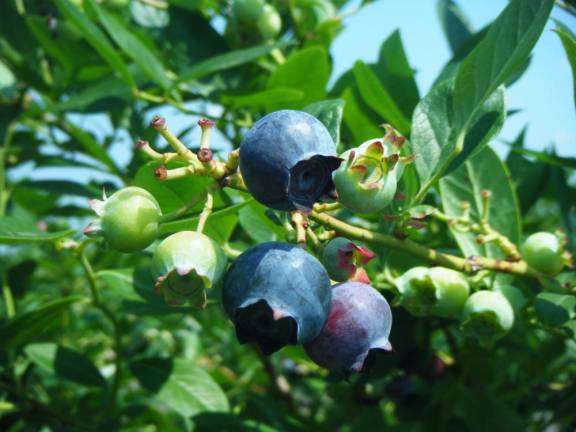You say blueberry, I say huckleberry


Ramble rocky peaks, grassy marshes or woods and you’re sure to find ‘em in all their juicy glory. Nothing compares to fresh-picked wild blueberries on a hot summer’s day. Well, except for their common lookalike, huckleberries.
Blueberry and huckleberry are both common names for delicious blue-black fruits. You wouldn’t be wrong to call a huckleberry a blueberry; common names are simply that – names commonly applied to plants. But to use them interchangeably can get confusing, so we’ll do our best to keep them straight.
Technically speaking, blueberry and huckleberry are distinct. Blueberries are of the Vaccinium genus, and you’re apt to find numerous species, such as Vaccinium corybosm and Vaccinium angustifolia. Huckleberries are of the genus Gaylussacia and around these parts, you’ll find Gaylussacia baccata.
Pluck a berry and inspect the end opposite where it attached to the stem. A blueberry bears a five-pointed crown. A huckleberry bears an imprint of a five-pointed star. Both crown and star are scars from where flowers were once. If your berry bears neither, don’t assume it’s safe to eat. There are indeed other blue-black fruits in the wild, some of them toxic. Due to crispy seeds, huckleberries also crunch when you eat them. For this reason, ol’ timers liked to call them crackle or cracker berries.
Both blueberries and huckleberries provide tart, antioxidant-rich refreshment thanks to their vitamin C and anthocyanin content. Anthocyanins are flavonoids found in a variety of red, blue, black, and purple fruits and have been shown to reduce inflammation, the formation of cholesterol, and support general cardiovascular health. Further studies are analyzing their potential to slow cancer growth and protect the brain from degenerative diseases.
And blueberries provide a bonus! Steep antioxidant-rich leaves for tea. Leaves taste astringent, similar to green tea, and also contain a powerful urinary antibacterial, arbutin, a chemical which you may know from blueberry’s close cousin, cranberry.
So go on, harvest a pail of wild blueberries, or huckleberries, or whatever you want to call ‘em! Enjoy them raw, pureed in a smoothie, tossed in whole wheat pancakes or blended into oatmeal. Strip some blueberry leaves for tea. These edible and medicinal berries are bountiful and sure to delight.